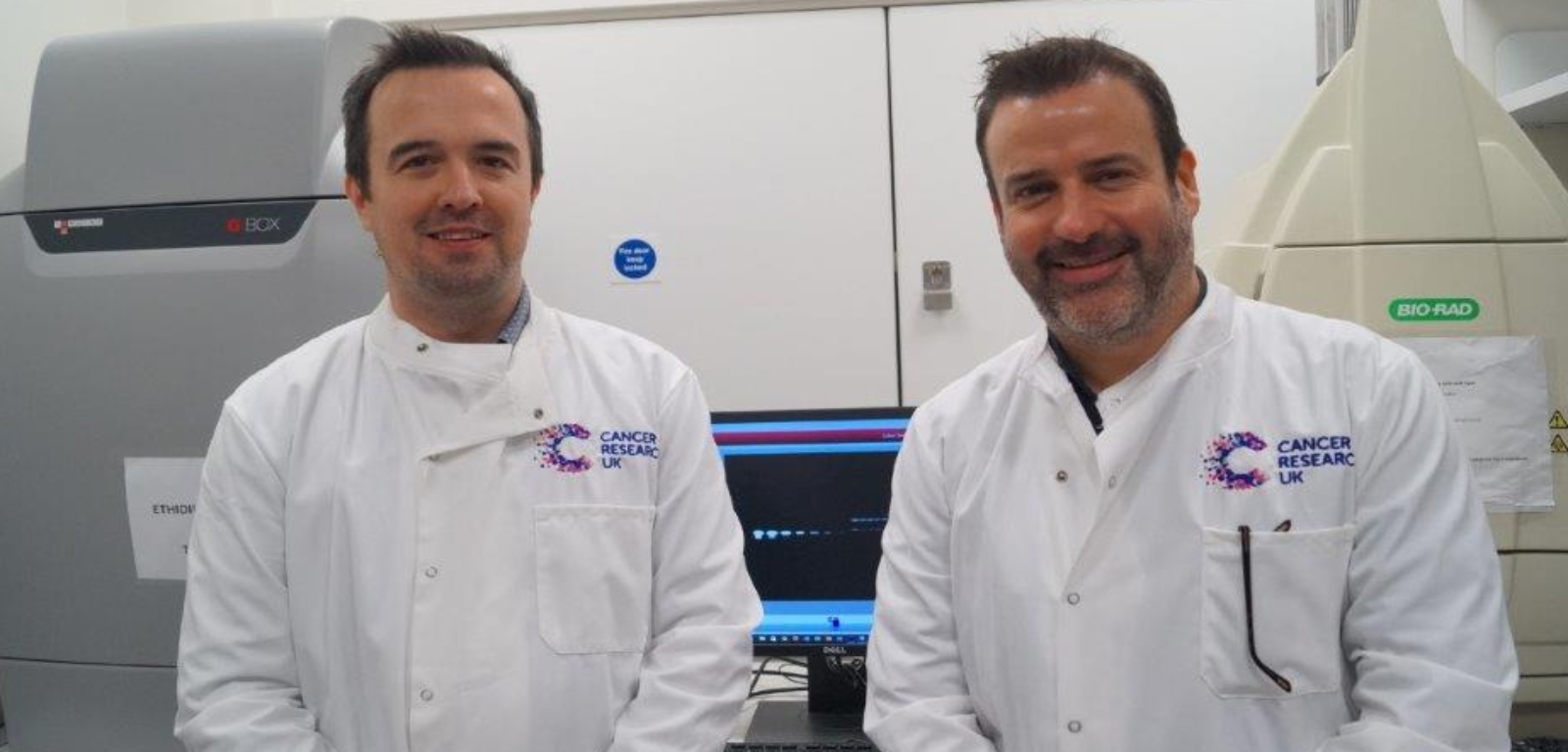New research finds the ‘Guardian of the Genome‘ gene can prevent cell death in colorectal cancer
Research led by Queen’s University has found a new way through which the p53 gene, also known as the ‘Guardian of the Genome’, the most frequently mutated gene in cancer, can prevent cell death in colorectal

Following this new discovery, the research team have identified new treatments that may improve the effectiveness of chemotherapy given to patients to treat colorectal cancer.
The research has been published in the journal Proceedings of the National Academics of Science (PNAS) and was jointly led by Principal Investigators, Dr Simon McDade and Professor Daniel Longley’s Research Groups from The Patrick G Johnson Centre for Cancer Research at Queen’s.
The tumour suppressor gene p53 normally tells cells to stop growing or die in response to cancer-causing stresses, such as DNA damaging UV light from the sun. However, how and why the ~50 percent of colorectal cancers in which p53 is not mutated suppress its ability to induce cell death remains poorly understood, until now.
The research team found that when colorectal cancer cells in which p53 is not mutated are treated with chemotherapy, they become highly reliant on increased levels of a protein called FLIP (that blocks cell-death) for survival. Unexpectedly, the team found that in colorectal cancer cells, FLIP levels are increased by p53 itself, paradoxically blocking p53-induced cancer cell-death. Importantly, the team also found that this reliance on FLIP can be exploited with drugs called HDAC inhibitors that block p53-induced expression of FLIP but maintain activation of cell-death. This enhances the ability of chemotherapy to kill cancer cells.
The research provides evidence for future clinical trials combining p53 activating therapies, such as chemotherapy, with HDAC inhibitors to treat colorectal cancers with non-mutated p53.
Study lead, Dr Simon McDade, Senior Lecturer and Functional Genomics Group Leader at Queen’s University, said: “We believe that we have uncovered an important evolutionarily conserved physiological role for p53 in preventing cell-death that normally functions to protect critical epithelial barriers in our skin, gastrointestinal tract and airways in the face of environmental damage, such as UV light and environmental toxins, to which they are exposed on a daily basis.
“We believe that this mechanism has been exploited by colorectal cancers and other cancer types with non-mutated p53 to prevent them from dying in response to standard-of-care chemotherapy and that this is something we can exploit to increase effectiveness of treatments.”
Professor Daniel Longley, Chair of Cancer Biology at Queen’s University, added: “Importantly, this mechanism of resistance to chemotherapy caused by p53’s upregulation of FLIP can be overcome by HDAC inhibitors and novel agents currently in development in our lab that directly target FLIP, thereby paving the way for improving treatment of colorectal tumours with non-mutated p53.”
Ongoing studies, related to these findings recently funded by the Biotechnology and Biological Sciences Research Council (BBSRC) aim to provide further insights into the maintenance of skin and intestinal health that could inform new ways of protecting these vital barriers and combating diseases in which these barriers become compromised; these include inflammatory diseases of the skin (e.g. atopic dermatitis and psoriasis) and gut (e.g. inflammatory bowel disease). In addition, funding from The Wellcome Trust and MRC is supporting the development of novel FLIP inhibitors for the treatment of colorectal cancer and other cancers.
The research was enabled by funding from the Biotechnology and Biological Sciences Research Council (BBSRC); Cancer Research UK (CRUK) Bobby Moore Fund; CRUK and Experimental Cancer Medicine Centres (ECMC) Trials Network; The Wellcome Trust; Medical Research Council; and two PhD students funded by the Department for the Economy.
Media
Media inquiries to comms.officer@qub.ac.uk
